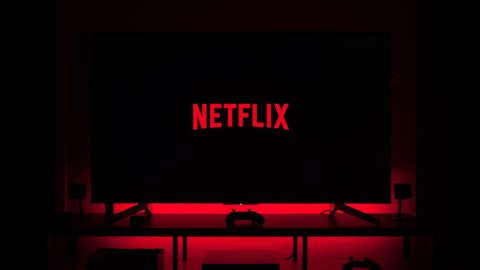So, we see still significant opportunity and growth in the franchise. And I think the team has a really good grasp and have their head around where we’re prioritizing and what their focus is.
Andrew Uerkwitz: Got it. That’s super helpful. Yes, go ahead.
Stuart Canfield: And Andrew, just to cover for you the financial-specific question upfront as well. And if I back off everything Andrew and Laura just noted, I’m just thinking about, obviously, we entered the year with a more measured approach given the prior Q3 and Q4. We know Q3 is a natural competitive window for us. Inside of how we split the year on H1, obviously, we’ve got record FIFA performance across the franchise and obviously, mobile is ahead of our expectations. And you should think about Q4 from a seasonality perspective, Apex being one of our stronger quarters as well. So that’s how ultimately it balances back in terms of the range on the guide.
Andrew Uerkwitz: Got it. That’s super helpful. And then just kind of a long-term question maybe for Laura and Stuart. Is — Andrew did a great job of kind of outlining the pipeline, and I think it’s safe to say we’re deep enough in a post-COVID world where maybe development is getting back to normal. Where do we stand on that? And as you kind of think about the old, soft guidance, I think, was kind of — the goal was every year, high single-digit growth, double-digit bottom line growth. Are we getting back to the point where that’s going to be normal again? Or is there — should we expect some still lingering impacts from game delays and COVID and work from home and whatnot? Thank you.
Laura Miele: Yeah. Thanks, Andrew. We just recently reorganized our company into two segments — into divisions of entertainment and sports, and we think that there is significant growth potential still in both areas. And with a vertical focus in our entertainment business, which I am currently leading, we see significant growth potential in the development of these connected game ecosystems, as Andrew outlined, in action blockbuster titles as we talked about Marvel with our Black Panther and Iron Man and Star Wars games as well. So we see a really strong combination in our strategy around these connected games and these blockbuster action games. And I would say that this is a new evolution of our strategy. So to say that we would go back to development as we once knew it, I think that we are looking forward and continue to reinvent and evolve our development approach and practices based on the opportunity, based on our new strategy, and based on the new structure of our organization.
Stuart Canfield: And Andrew, just to kind of look back on the long-term financial thinking. I think, as you know, obviously, we expensed versus capitalized, and we’ve been in an investment cycle as we build out the multi-year pipeline that Andrew referenced in his script. I think in terms of, is it going to be sort of normalized, I think we’ll continue to map through sort of timing and sequencing for both those releases. You should expect us to start to talk to that towards the back-end of the calendar year early into the next calendar year. And we know we’ll give more sort of credence to timing. We want to make sure that we are really clear with our development teams and get into the quarter levels we expect. But you should expect us to get to ultimately with that multi-year pipe sort of more step functional change in the future.
Andrew Uerkwitz: Got it. That’s really helpful. Thank you, both.
Katie Burke: Operator, next question, please.
Operator: Our next question comes from the line of Matthew Cost with Morgan Stanley. Your line is open.
Matthew Cost: Hi, everybody. Thanks for taking the question. I guess starting maybe with Andrew and Laura. Can you talk a little — in a little more detail about the decision to reorganize the studios into the entertainment and the sports segments and what you’ll be able to do differently and better now that you couldn’t do before? And then I have one follow-up. Thanks.




